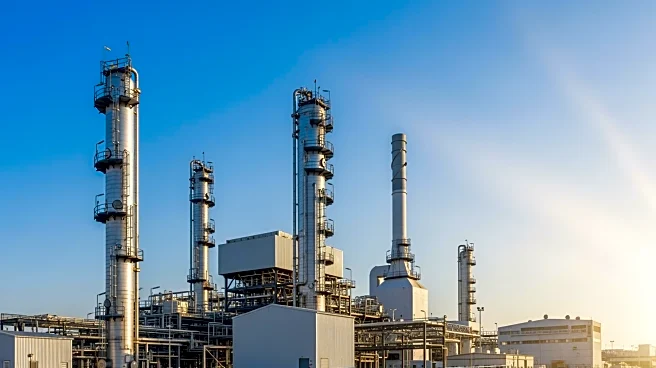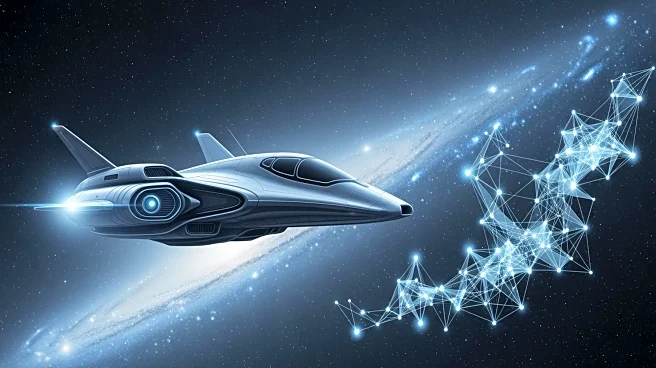What's Happening?
Mohammed bin Salman, Crown Prince and Prime Minister of Saudi Arabia, is spearheading a transformative vision for the kingdom through his ambitious Vision 2030 plan. This initiative aims to diversify Saudi Arabia's
economy, reducing its dependence on oil and fostering growth in sectors such as tourism, technology, and renewable energy. Mohammed bin Salman, often referred to as MBS, has been instrumental in driving key projects like NEOM, a futuristic megacity, and the Red Sea Project, which aims to develop the region into a world-class tourism destination. His leadership is characterized by a balance between modernizing reforms and preserving Saudi Arabia's cultural heritage.
Why It's Important?
The Vision 2030 plan is crucial for Saudi Arabia as it seeks to transition from an oil-dependent economy to a diversified one, ensuring long-term economic stability and growth. By investing in non-oil sectors and attracting foreign investment, Saudi Arabia aims to create new job opportunities and income streams, empowering its citizens and enhancing its global economic standing. Mohammed bin Salman's leadership in these initiatives positions Saudi Arabia as a key player on the world stage, fostering international partnerships and driving innovation. The success of Vision 2030 could serve as a model for other oil-dependent nations seeking economic diversification.
What's Next?
As Vision 2030 progresses, Saudi Arabia will continue to implement reforms to improve its business environment and attract global companies. The kingdom is expected to focus on empowering entrepreneurs and supporting small and medium businesses through financial aid and training programs. Mohammed bin Salman will likely continue to champion social reforms, including women's empowerment and cultural openness, while maintaining a commitment to preserving Saudi traditions. The ongoing development of mega-projects like NEOM and the Red Sea Project will be closely watched as indicators of the plan's success.
Beyond the Headlines
Mohammed bin Salman's leadership has sparked discussions on the ethical and cultural implications of rapid modernization in a traditionally conservative society. Balancing progress with tradition presents challenges, as does ensuring equitable distribution of economic benefits. The kingdom's reliance on foreign expertise for some projects raises questions about long-term sustainability and self-sufficiency. However, the commitment to Vision 2030 reflects a broader shift towards embracing global trends while maintaining a distinct cultural identity.









